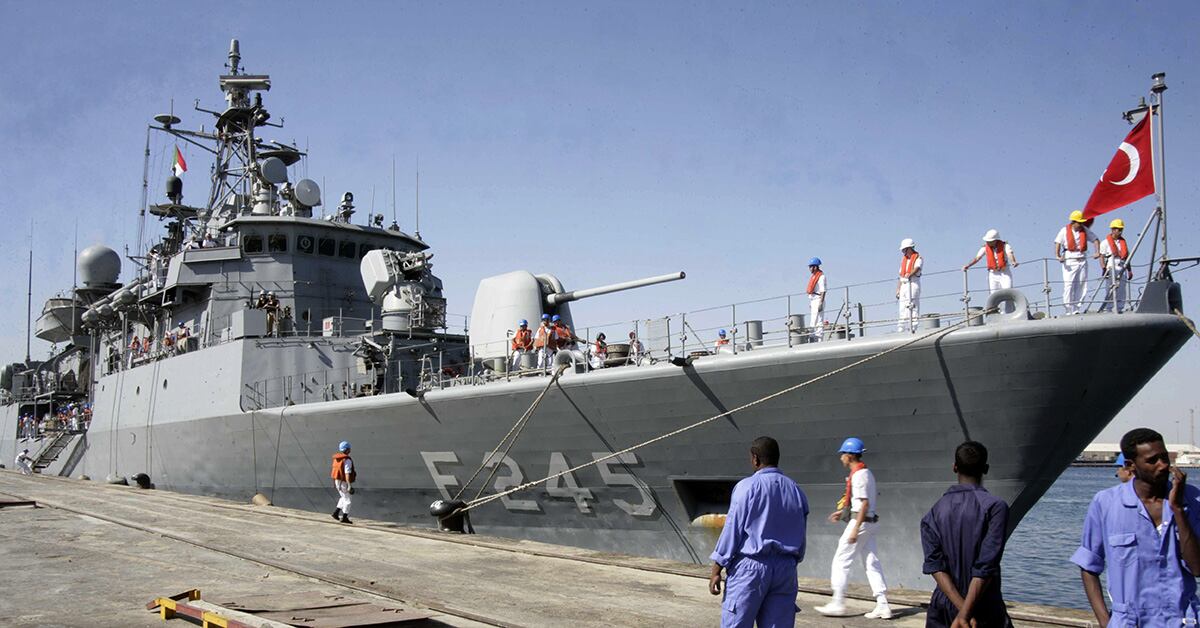ANKARA, Turkey — Five Turkish shipyards have joined forces to build a consortium in order to develop the country’s first indigenous ship engine.
The shipyards Sedef, Anadolu, Sefine, Selah and Istanbul, all privately owned, have formed Turkish Associated International Shipyards, or TAIS, that will design, develop and produce engines for military vessels.
Sualp Urkmez, CEO for Anadolu Shipyard, said the consortium aims to produce the first engine prototype within two and a half years and start serial production within four and a half years.
The need to earn engine production capabilities is obvious. “Turkey is the only country in the world that can produce vessels of all types (including military) but does not have an engine production plant,” said Metin Kalkavan, chairman of a federation of Turkish maritime chambers.
Kalkavan said Turkish President Recep Tayyip Erdogan has urged local shipyards to produce local systems, including engines, at “whatever the cost.”
RELATED

“That will elevate Turkish shipyards to the class of countries that can compete in world markets as prime contractors,” he said. “It is imperative that we build our warships and their systems and subsystems locally.”
TAIS is preparing to launch an investment first into the design and development phases of the venture.
Urkmez said the consortium calculates that the Turkish market will generate demand for 100 ship engines in the first 10 years of operations. “In addition to that, there will be a need to change the engines of up to 400 ships,” he said.
But more importantly, according to Urkmez, exports will ensure the survivability of TAIS. “Exports of vessel systems in the prime contracting category will be the driving force behind the engine idea,” he added.
Industry sources say Turkish shipyards have become “70 percent self-sufficient” in production compared to only 20 percent a decade ago.
At the Doha International Maritime Defence Exhibition and Conference last month in Qatar, Turkish producers won contracts worth $800 million, of which $500 million went to Turkish shipyards.
The Turkish government is fully backing the engine venture. “It is a policy-level decision to support every activity for the development of indigenous engines, for land, aerospace and naval use,” a senior procurement official said. “There will be big demand for engines both from our own programs and from foreign contracts our companies will compete for.
“The idea is to end our dependence on foreign engine technology at a time when local companies have the capabilities to produce most of the [naval] systems and subsystems.”
According to Ozgur Eksi, a defense analyst with C4 Defence, the local investment in engine technologies makes sense. “TAIS brings together some of Turkey’s most prominent shipyards. It is only natural that this consortium wants to develop an indigenous engine at a time when the naval market is visibly prospering,” Eksi said.
A country located in a volatile region, Turkey has in recent years thrived to push up its regional political clout, and the government has commissioned a wide range of vessels from local shipyards.
In the past two years a total of six naval ships have been either delivered to the military command or launched. These are the Ada-class corvettes TCG Burgazada and TCG Kinaliada; landing ship TCG Bayraktar; logistical support ships TCG Yuzbasi Gungor Durmus and TCG Ustegmen Arif Ekmekci; and rescue ship TCG Alemdar. In the past 15 years Turkey has completed 14 military ship programs. The number of Turkish shipyards has risen from 37 to 80 since 2003.
Last year Turkey launched a national frigate program that involves the construction of “I-class” vessels. These ships can carry longer-range weapons systems compared to the Ada-class corvettes and feature advanced command-and-control systems.
Sedef, one of the partners of TAIS, is building in partnership with Spain’s Navantia the TCG Anadolu. The vessel is a derivative of the Spanish ship Juan Carlos, described as a “light aircraft carrier.”
Under the program, worth more than $1 billion, Navantia will provide the design, technology transfer, equipment and technical assistance to Sedef for the TCG Anadolu. The ship will be built in Turkey and feature locally made command-and-control and combat systems.
The TCG Anadolu also will feature a fully equipped flight deck with the ski jump ramp in front. It will be capable of operating up to 12 F-35B fighter jets and 12 helicopters at a maximum range of 9,000 miles. Its 5,440-square-meter flight deck and a 990-square-meter aviation hangar can accommodate either 12 medium-sized helicopters or eight CH-47F Chinook heavy-lift helicopters.
The ship will be delivered to the Turkish Navy in 2021.
Burak Ege Bekdil was the Turkey correspondent for Defense News.







